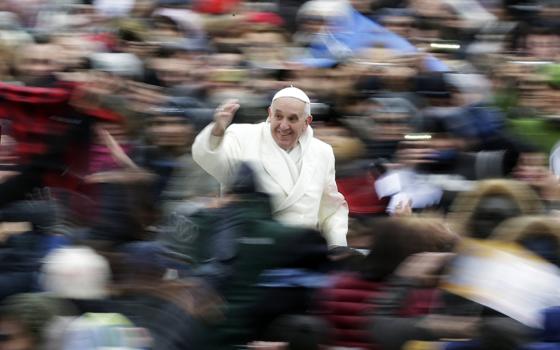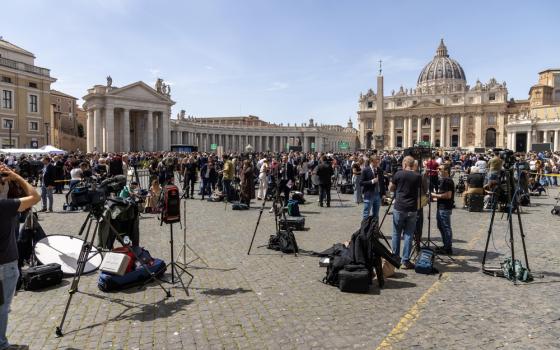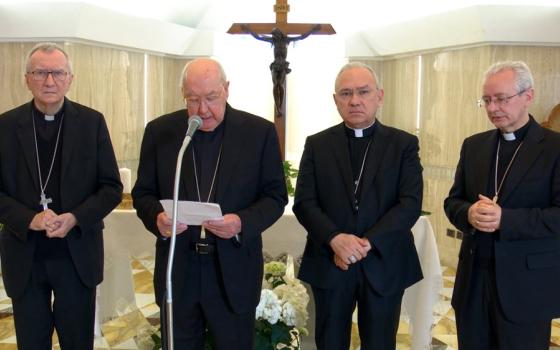In The Washington Post, E.J. Dionne Jr. discerns the real motivating factor in the decision of the entire Republican party to give President Donald Trump a pass on his outrageous behavior: They are united in an effort to hold on to their power, and the power of the wealthy plutocrats they serve, as long as possible. I normally resist the emphasis on power as the principal motivator of human actions, which has dominated liberal thought since Michel Foucault, but in this instance, the evidence is undeniable. This is about power.
In The New York Times, a fascinating look back at how and why the polls in 2016 did not predict Trump's victory. I knew about the failure to weight the poll for education, but I had not realized the role played by voters in counties that Barack Obama had lost badly in 2012:
When the Census Bureau in 2017 released detailed voting information from the 2016 election, it revealed that turnout had surged in many counties that Mr. Obama had lost by 10 points or more in 2012 — particularly in Michigan, Pennsylvania and Wisconsin.
Think about that for a minute. In those parts of the country that really disliked Obama, turnout surged in 2016. That is to say, those voters were not motivated to turn out for Mitt Romney in 2012, but they were motivated to turn out for Trump in 2016. Now, close your eyes and think of this year's Democratic race and tell me again why the Dems should nominate a "moderate?" The only factor I think is difficult to measure that creates some "noise" around the 2016 surge is this: How much of it was an anti-Hillary Clinton vote as much as a pro-Trump vote? The role of "late deciders" among candidates with really high negatives is also interesting. In Wisconsin, between 13% and 15% of the electorate made up their mind in the last week of the campaign, and they broke for Trump by 30 points. Late deciders also broke decisively for Ronald Reagan in 1980. Incumbency hurts among this group of voters.
Advertisement
Also in The Times, David DeSteno has an interesting take on psychological research showing all the benefits that come from cultivating a sense of gratitude. (He thinks gratitude is wasted on Thanksgiving, but that is a different story.) My question is different: How is gratitude altered, and is it degraded, when it is seen in a utilitarian manner?
At Inside the Vatican, an English translation of a recent article by Archbishop Carlo Maria Viganò in which he shows his true neo-Feeneyite colors:
The comparison between the pre-conciliar Magisterium and the new teachings of Nostra Aetate and Dignitatis Humanae — to mention only those — manifest a terrible discontinuity, which must be acknowledged and which must be amended as soon as possible. Adjuvant Deo ("with God's help").
Two of the great achievements of Vatican II need to be "amended?" Who died and left Viganò to judge a council?
At Current Affairs, Nathan J. Robinson takes on, and takes down, the arguments against the wealth tax that are found in the Wall Street Journal and other such publications. In the process, he hits the libertarian nail on its epistemological head:
One thing you should always remember about libertarians is that they hate facts. If they touch a fact, they die. Facts are to libertarians like water was to the Wicked Witch. What libertarians like are stories. Here's what I mean: If you say "We should raise the minimum wage to a living wage, so that companies have to pay their workers enough to afford their rent," a libertarian will not reply with facts, but with a story. They will say: Ah but if you do that the company will simply lay off a bunch of workers and unemployment will rise. Note that this is not empirical evidence. It is a tale. A prophecy. Because the actual empirical evidence is that this does not in fact happen, that "the number of jobs cost by minimum wage laws is negligible" and "they raise wages without much downside." Go near a libertarian with this and they will scream as they melt.
That is just some excellent writing and analysis. Bravo.
At Religion News Service, another bit of excellent writing and analysis, this time from Mark Silk who dissects the concept of a "Judeo-Christian tradition." Silk was one of the first people to recognize that the concept was created to serve political ends, not because it corresponded to an actual intellectual or moral tradition. To see a bastard concept further bastardized to advance rightwing politics is one of our era's stranger realities.
[Michael Sean Winters covers the nexus of religion and politics for NCR.]
Editor's note: Don't miss out on Michael Sean Winters' latest. Sign up and we'll let you know when he publishes new Distinctly Catholic columns.







